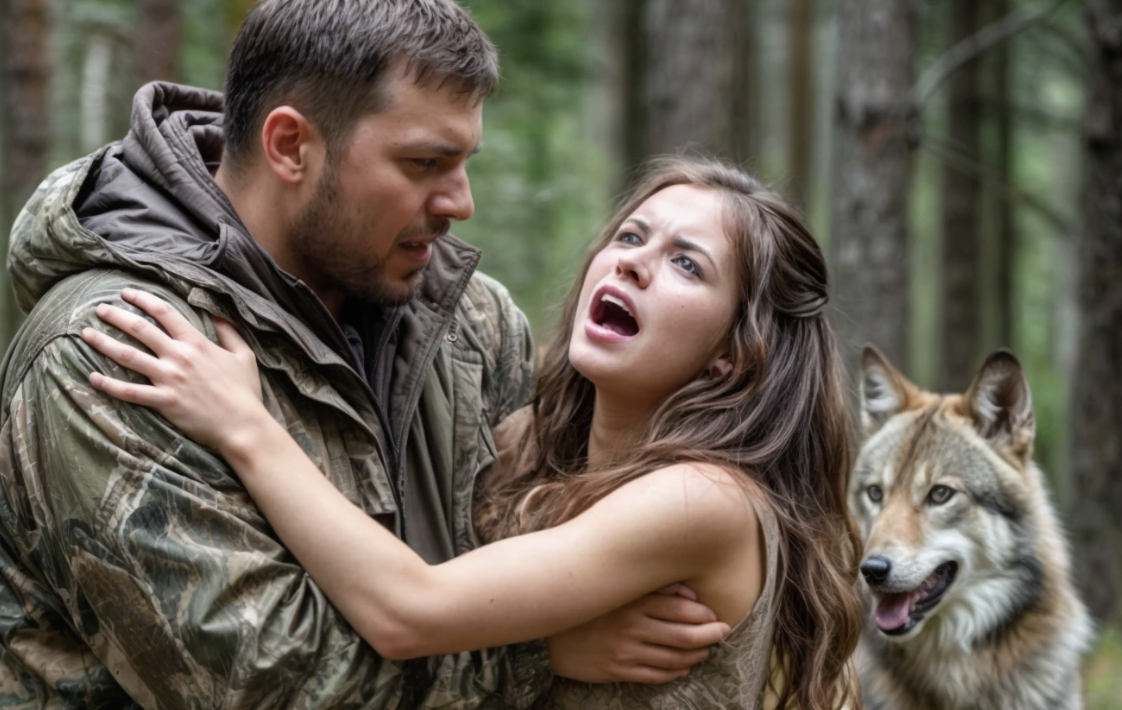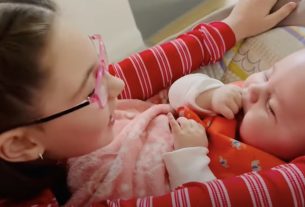Deep in the Kaluga land, where forests whisper fairy tales and rivers weave silver patterns, lay the forgotten village of Sinegorye. Its streets, like old bones, had dried under the sun of time. The youth had long since flowed away into the cities, like water through cracks, leaving behind only elderly widows—those whose hearts still beat in rhythm with the bells of the abandoned little church. They were seventy, even eighty, but their eyes, like embers in ash, still held a spark of life. Only occasionally, in the July heat, grandchildren arrived—ruddy-faced, noisy, with suitcases full of city bustle.
Among them was Viola—a girl with hair the color of ripe wheat and eyes reflecting the depth of blueberry lakes. Her parents, doctors from Moscow, sent her every summer to her grandmother, Agata Fedotovna, believing that the Sinegorye air, steeped in the scents of wormwood and raspberries, would make their granddaughter strong as oak. Agata’s house stood on the very edge of the village, where the fields gave way to thick pine woods. In her household lived only the cow Marfa, hens with colorful crests, and the old cat Chernushka, whose scars told of battles with foxes.
But one morning, before the dew had dried, Chernushka brought from the forest a bundle trembling in her teeth. Agata, wiping her hands on her apron, gasped:
— “Lord, it’s a rat!”
But when Viola crouched down, she saw—pink paws stuck out from under black fur, and eyes, still unopened, looked like two pearly seeds.
— “Grandma, it’s not a rat! It’s… a wolf cub!”
Indeed: tiny, barely alive, he clung to the girl’s palm like a kitten. Chernushka, arching her back proudly, purred as if she herself had birthed him. She had picked him up in the forest—perhaps his mother had abandoned him, or a storm had carried her away. Cats sometimes do this: confusing wolf cubs with kittens, giving them motherhood without knowing they are raising a predator.
— “Let’s keep him, Grandma!” Viola begged, pressing the creature to her chest. “I’ll feed him, walk with him… He won’t hurt anyone, I promise!”
Agata sighed, looking at her granddaughter whose cheeks flushed with delight. How could she refuse someone who saw the world as a gift?
So Veiga appeared in the house—the name Viola invented while listening to the wind singing through the pines. She fed him from a bottle, wrapped him in a kerchief, while Chernushka taught him to jump on the fence and wash his muzzle with his paw. Veiga grew up copying the cat’s habits: he slept curled in a ball, purred when petted, and even chased butterflies like a kitten. But each day awakened more of his wolfish nature—his fur thickened, his gaze sharpened, and his step grew soundless.
By the time Viola turned sixteen, she could no longer live without Sinegorye. Her parents forbade her to take Veiga to their Moscow apartment, but she visited her grandmother monthly, sometimes more. The wolf—now tall, strong, with silver-gray fur—met her at the gate, as if he knew the bus schedule. He never barked or growled—he simply laid his head on her knees while Viola told him about school, her dreams, how the city pressed on her like an iron lid.
One July evening, when the sun melted the horizon into gold, Viola was returning from the district center. The old bus stopped creakingly on the dark road.
— “She’s breaking down,” muttered the driver. “Walk, Sinegorye’s five kilometers.”
Viola wasn’t afraid—she knew the forest like her palm. But as the village lights flickered in the distance, an engine roared behind her. A black SUV shot from the darkness like a shadow. A young man in a crumpled shirt staggered out, each breath heavy with alcohol. His narrow, cruel eyes slid over Viola like a knife’s blade.
— “Get in, I’ll give you a ride,” he rasped.
— “No, thank you,” she stepped back, but his hand clamped onto her wrist.
He shoved her into the car, pinned her to the seat.
— “Scream, and you’ll get it in the face.”
When the SUV turned onto a forest path, Viola screamed, wrenched free, and ran until branches tore her face. But he caught up… and when his fingers brushed her neck, a silver flash burst from the darkness.
Veiga.
He struck the man like a storm. His fangs sank into the arm, hurling him against a tree. The man screamed, trying to shield himself, but the wolf tore at clothes, scratched skin, lunging for his throat. At the last moment, the man scrambled into the SUV, slammed the door, and the vehicle vanished into the night, snapping branches.
Viola trembled, pressing her face into Veiga’s neck. His fur smelled of pine and warmth, his heartbeat so loud it drowned out the owls’ cries.
— “You saved me…” she whispered, burying her fingers in his thick coat.
The wolf licked her tears—salty as the sea.
In the morning, Agata, hearing the story, crossed both granddaughter and wolf three times.
— “He’s no wolf,” the old woman said, staring at the beast who never left Viola’s side. “He’s an angel in fur.”
From then on, in Sinegorye they whispered: if you hear a wolf with a silver mane howling in the forest—run. But if he is silent, guarding someone’s house, know: here lives a soul that even darkness will not dare to touch.
And Viola, who became a teacher, brought books and children to the village, so they would not forget—there are still places in the world where goodness is stronger than fear.
And every evening, when the sun sank into the blueberries, Veiga lay by the doorstep, guarding the sleep of the girl who once called him “home.”



